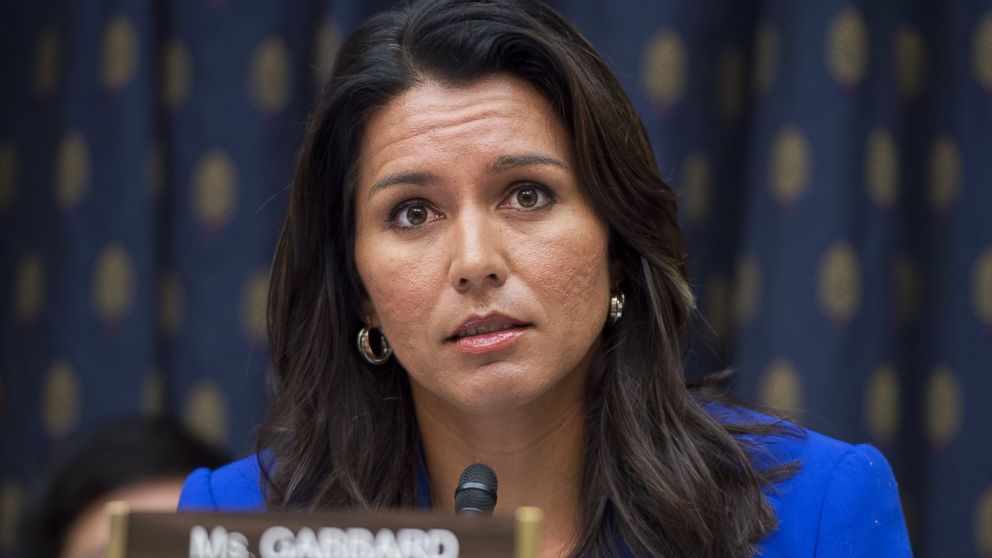Understanding Tulsi Gabbard’s Critique of Obama
In recent political discussions, Tulsi Gabbard has emerged as a unique voice, particularly when it comes to her critiques of former President Barack Obama. Gabbard, a Democratic Congresswoman from Hawaii and a former presidential candidate, is known for her outspoken views on U.S. foreign policy, especially regarding military intervention in places like Iraq and Syria.
One notable instance of Gabbard’s criticism occurred during her tenure as a soldier in the Hawaii Army National Guard, which directly shapes her perspective on military issues. Her ability to articulate concerns regarding Obama’s policies has resonated with many voters who seek an alternative viewpoint within the party.
The Context of Gabbard’s Critique
Gabbard’s critiques are often viewed through the lens of her experience in the military and her commitment to peace. During an interview, she pointedly expressed her fears about the Obama administration’s handling of the Islamic State (ISIS) and the broader mess in the Middle East. Her positions have been detailed in articles such as the one from ABC News, which highlights her unique stance within the party.
Unlike many of her contemporaries, Gabbard is not afraid to critique the Democratic establishment, which is often perceived as overly cautious or tied to specific political narratives. Her boldness in critiquing Obama is significant, particularly given his lasting influence on the party.
Gabbard’s Unique Position
Gabbard’s positions often align with a more isolationist approach that diverges from mainstream Democratic views. Her perspective on military interventions, such as her advocacy against the U.S. involvement in Syria, stands in stark contrast to Obama’s policies that were characterized by more aggressive military action.
She argues that these interventions have not only destabilized regions but have also ultimately harmed U.S. interests abroad. This critique creates a fascinating discussion around the effectiveness of interventions and the strategic withdrawal of U.S. forces.
The Political Landscape
Gabbard’s critiques come at a time of intense scrutiny regarding the effectiveness of American foreign policy and military actions. The legacy of Obama’s interventions during his presidency often garners both praise and condemnation. Critics, including Gabbard, argue that decisions made in the name of national security have led to greater instability and conflict.
Such discussions are critical as the electorate becomes increasingly war-weary, exemplifying a shift in voter sentiment regarding military engagement abroad. Gabbard’s unique critique positions her as a voice of caution and consideration, which may resonate with those who prioritize diplomacy over warfare.
Response from Democratic Leaders
The response from Democratic leaders to Gabbard’s critiques has been mixed. While some have applauded her courage to speak out, others view her criticisms as counterproductive to the party unity that is necessary for upcoming elections. This internal conflict within the party showcases the diverse perspectives that exist, challenging the notion of a monolithic Democratic ideology.
Impact on Future Elections
Gabbard’s stance may have implications for future elections as voters increasingly demand transparency and accountability from their leaders. Her ability to challenge established narratives could inspire a new generation of politicians who are willing to question the status quo.
As discussions around Obama’s policies continue, it will be essential to consider Gabbard’s views as part of a broader conversation regarding America’s role in the world. Her unique perspective encourages voters to critically evaluate past decisions and pushes for a foreign policy that reflects a more cautious approach.
Conclusion
The discourse surrounding Tulsi Gabbard and her critiques of former President Barack Obama highlights the ongoing evolution within the Democratic Party. As voters grapple with complex issues of national security and foreign interventions, Gabbard’s insights offer a refreshing perspective that challenges existing paradigms.
In the end, whether one agrees with her or not, Gabbard’s willingness to speak out against a former party leader is a testament to her commitment to what she believes is best for America. As we move forward in an increasingly complicated global landscape, the importance of diverse voices like Gabbard’s cannot be overstated.








